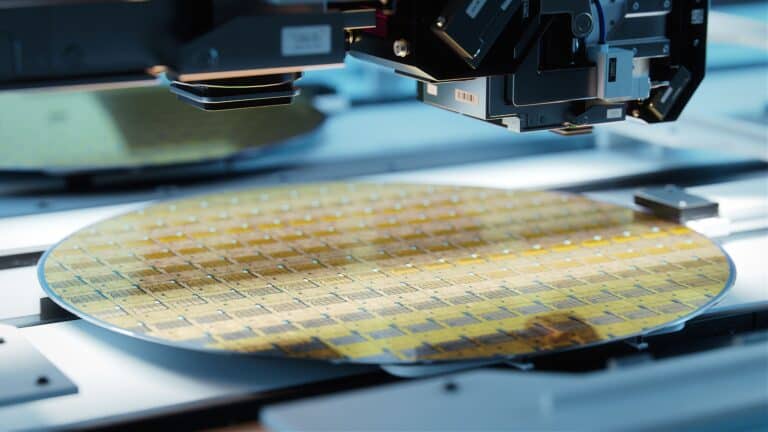The end of Intel’s dominance in the PC market seems ever closer. In recent years, AMD has already stepped up the competition, but now it has become clear that Intel is going to face competition from another angle. Both Nvidia and AMD are working on ARM chips for Windows computers.
Microsoft has been working on a proper ARM version of Windows for years. The first version appeared in 2012, and since then, Microsoft has made great strides to make Windows 10 and later Windows 11 compatible with ARM chips. Apple, in the meantime, has shown how to do it. It has developed its own ARM chips for its Macbooks, iMacs and Mac Minis and has been very successful. Apple doubled its market share since it switched to ARM chips.
However, we are still waiting for the Windows 11 ARM breakthrough. The big problem seems to be finding an ARM chip powerful enough to compete with Intel processors. Microsoft created that problem when it entered into an exclusive partnership with Qualcomm for ARM chips for Windows. That exclusive partnership was never officially confirmed, but several sources frequently mentioned it over the years.
Nvidia and AMD bet on ARM for Windows starting in 2025
Multiple sources have now surfaced reporting that both Nvidia and AMD are working on developing ARM chips for Windows which can be seen as a confirmation of the exclusive collaboration with Qualcomm. Since the sources are reporting that the chips will not come to market until 2025. That is when the exclusive cooperation between Qualcomm and Microsoft would reportedly end.
The big question, of course, is why Qualcomm can design the best chips for smartphones, but ultimately fails when designing chips for computers. The chips Qualcomm has released to date for Windows computers have been substandard. They could not compete with Intel’s latest chips. In doing so, Qualcomm has left much to be desired, something Nvidia and AMD see as an opportunity.
Qualcomm tries again today
Before we write Qualcomm off completely, it has one more chance today. A presentation of a new Qualcomm chip for Windows computers is scheduled for later today. This is reportedly an internal presentation by Qualcomm to Microsoft executives. This new chip was designed by the team at Nuvia, a startup that Qualcomm bought in 2021 for $1.4 billion. Nuvia was founded by former Apple chip designers who were partly responsible for the success of the Apple M-Series. They have now had two years to come up with a competitive ARM chip that should make Windows computers faster and more efficient. With that, the expectations for today are a bit higher compared to previous Windows chips from Qualcomm. The big question is when Qualcomm or Microsoft will present the chip to the public.
Intel will put pressure on PC manufacturers
Intel’s stock price already went down in recent days. Innovations in the chip market and increasing competition put further pressure on Intel. Currently, 9 out of 10 PCs sold are still equipped with an Intel processor; Intel will try to protect that position for as long as possible. AMD made a comeback in the CPU market several years ago. Even then, it took a long time before PC manufacturers expanded their portfolio to include AMD desktops and laptops. We expect that PC manufacturers will also initially hold off when ARM chips are introduced. This is mainly because of the pressure Intel is putting on these PC manufacturers.
Laptop and computer sales are a marginal business. In general, there is not a whole lot of money made on a computer. So, PC manufacturers benefit from good purchasing prices and attractive discounts when they buy parts. The game of attractive discounts is something Intel has become very good at over the years. Intel will no doubt start offering more discounts as it comes under pressure in the PC market.
In return, of course, is what the customer wants. Customers may soon want a Windows laptop with an ARM chip from AMD, Nvidia or Qualcomm. Supply is likely to lag initially. It is evident that Microsoft will quickly present a Surface Laptop with a Qualcomm chip. If it sells well, you have a chance that manufacturers like Acer, Asus, Dell, HP and Lenovo will adopt ARM. However, we suspect that it may take some time until there is a wide range of Windows laptops with ARM chips, because of Intel’s dominance and strategy.
Intel must come up with an answer
Intel has recently started producing EUV chips, finally allowing it to produce smaller, more efficient chips. This finally fixes the flaw in Intel’s strategy. The only way for Intel to keep the competition behind in the PC market is to come up with better and more efficient chips for Windows PCs. The question is whether that will succeed with x86 or whether Intel will eventually change tack and make ARM chips for PCs as well. AMD seems to be betting on both horses.
What is Samsung doing?
Samsung has not yet featured in this whole story. Samsung has successfully marketed Exynos chips for the past 10 to 15 years. The Qualcomm chips for smartphones were often just a bit better, but Samsung was never far behind. In theory, Samsung could also attempt to design a chip for PCs; it still has a successful PC division in some countries, after all. Right now, however, it is still quiet around Samsung, and it remains to be seen if this is a market the South Korean wants to play a role in.
